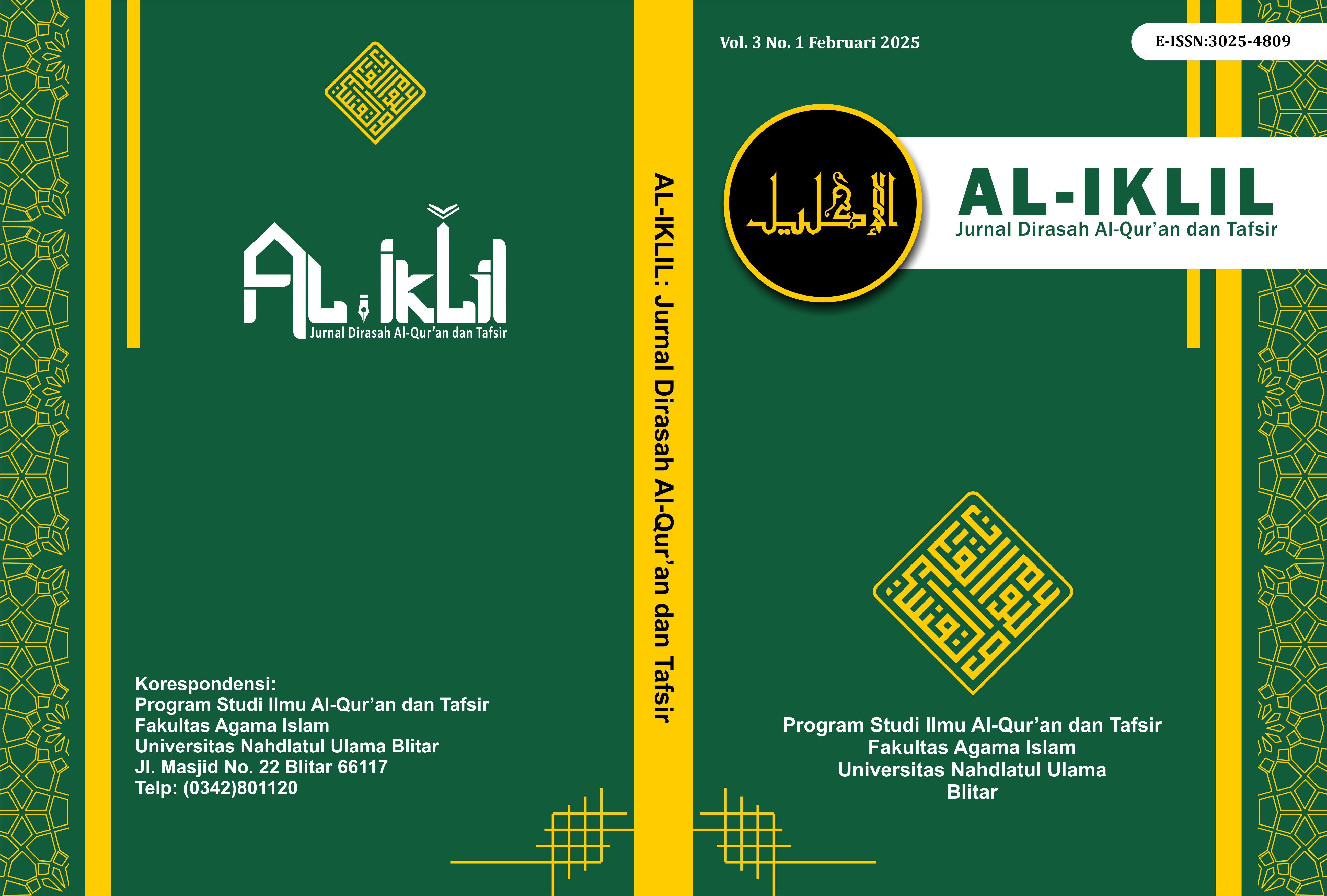Moderasi Beragama dalam Al-Qur’an: Analisis Semantik terhadap Term Ummatan Wasathan
Abstract
This study examines religious moderation through a semantic analysis of the term ummatan wasatan in Surah al-Baqarah [2]:143. It addresses how the meaning of this term helps construct the concept of moderation in the Qur’an. The study aims to explore the semantic dimensions of the word wasath and its role in shaping the Qur’anic understanding of a balanced Muslim community. Employing a library-based method and a descriptive-analytical approach, this research draws from classical and contemporary tafsir. The findings indicate that ummatan wasatan is interpreted as a just, balanced, excellent, and chosen community. Al-Ṭabarī emphasizes justice and the role of Muslims as witnesses over others; al-Rāzī links the middle position to moral justice; Baidhawi highlights the trait of virtuous character as a sign of being a chosen community, as these traits lie between two extremes—such as generosity, which lies between extravagance and miserliness, or courage, which lies between recklessness and cowardice. Al-Marāghī and Ṭanṭāwī emphasize the meaning of wasathan in a socio-political context, namely as a middle path between extremism and liberalism in religious practice. Semantically, wasath affirms the principle of wasathiyah, rejecting extremes and encouraging Muslims to engage positively in social and religious spheres.






